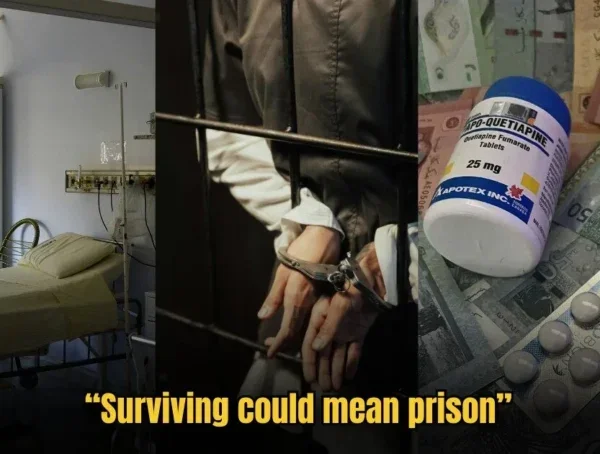[Trigger warning: War, PTSD, violence]

It’s World Mental Health Day on October 10th, so I’m going to talk about my experience dealing with triggers for those suffering from a Mental Health Issue (MHI). In this case, I had a friend – whom I refer to as “they” for their privacy – who has Post-Traumatic Stress Disorder (PTSD).
One of my European university friends came out to Malaysia to visit and celebrate my birthday. They are a combat veteran who has fought in some of the deadliest, bloodiest wars and conflicts between 2001—2010.
We were at a Halloween cosplay event in Kuala Lumpur when somebody popped a balloon. Acting on pure reflex and terror, they executed a full combat dive and roll to cover the nearest pillar – and I saw their right hand scrambling to draw a nonexistent sidearm from a nonexistent holster.
I saw those eyes widen with terror. I felt those large hands tremble, those broad shoulders shake as I pulled them into a hug, telling them it was just a balloon.
I don’t know what nightmare they re-lived in that 30 second period, but for us, the party was over.
After escorting them back to my place, I made a call to a trained therapist to be on standby for an intervention. Fortunately, their military training kicked in, and they had the medications on hand. Right now, they’re sleeping off a Xanax and two other medications I can’t pronounce.
A trigger is anything that can cause a full-blown PTSD reaction
 [Call For Backup – Veterans You Are Not Alone: https://www.youtube.com/watch?v=hxg_HZkCNkk]
[Call For Backup – Veterans You Are Not Alone: https://www.youtube.com/watch?v=hxg_HZkCNkk]
People often ask, “Are all war veteran PTSD sufferers scared of balloons?” The truth is, everyone’s trigger is specific to whatever trauma they have survived.
For my combat friend, it’s the sound of popping balloons. For another, it might be the sight of blood. For a third, it’s specifically Gucci Rush Perfume. The trigger can be anything that we non-PTSD-sufferers find mundane.
It’s not just the triggers that are unique — the resulting behavior is too. That night, my friend sat in bed, rolling a coin across their knuckles. The coin would hit the floor, and another one would appear in their hands like magic.
After 30 minutes, there were a half dozen coins scattered on the floor. PTSD drives them to do this thing. It might be completely small, pointless, and meaningless to you, but it’s the only thing that’s keeping the threads of their sanity from snapping.
Then they started talking in a loud voice. At first, I thought it was directed at me.
But as I sat and listened, it quickly became clear that it wasn’t about me. They were repeating what they had experienced, and perhaps most chilling, they were reliving it, right in front of me.
At the time, it felt like I just got my ass verbally beaten for no damn reason. If I had reacted in any way during their verbal barrage, I think I would never have learned the whole story. I did learn it, and however bad you can imagine it is, it’s worse.
I won’t break trust by revealing the details but I believe that just being there, helped them realize where they are, that they were not literally going through that hell again. That they were not alone.
PTSD isn’t just for War Veterans — it can affect anyone who’s been a victim of abuse, trauma, or violence
 It could be your best friend, a family member, sibling, or parents. You may be unaware of their triggers, even if you have known them for a decade, dating for 6 years or married for 25 years.
It could be your best friend, a family member, sibling, or parents. You may be unaware of their triggers, even if you have known them for a decade, dating for 6 years or married for 25 years.
The hardest part of living with someone who has PTSD is that you will never get a 100% understanding of the triggers of the condition function. There is a chance that even they do not fully understand how it happens.
PTSD can affect those who have survived a traumatic experience. Our lack of understanding as to how the brain works means that we cannot predict what will cause it.
It could be the “obvious” such as war, physical trauma, and abuse. The less common causes include a personal accident or the death of a loved one.
The thoughts and memories recur even though the danger has passed.
When that specific trigger is pressed, the danger is suddenly real again — the body’s natural fight or flight response takes over the mind, and they react instinctively. The mind forgets, but the body remembers.
Don’t make them feel stupid for it

So what can we do in this scenario? Well firstly, here what we shouldn’t do — never make them feel stupid or silly for having such an extreme reaction.
People who don’t understand how triggers work often do this: They tease them, belittle them, make them feel stupid, make them feel silly. Some even go out of their way to hurt them as a joke, or out of spite.
There’s even a meme on the internet where if you’re visibly upset about something, people sarcastically comment “Triggered” as a response. It’s a shutdown, a way of invalidating the person saying it.
The use of “triggered” now implies that someone is overly sensitive, but that wasn’t the original meaning. It was based in trauma psychology for PTSD survivors. It’s a real thing.
The last thing they need to hear is: “You’re too oversensitive.”
Why is this important? Because they have to know its ok to tell you the truth, no matter how stupid it might seem to do.
Don’t tell them to “Calm down.” or “It’s no big deal.”
The moment they wall themselves off and start feeling the need to hide the truth from you, they will pretend that they are fine around you. That’s a red flag.
You’ve lost their trust, they lie to you and pretend everything is ok, so they don’t feel like a freak, outcast, or reject.
Let them know that you are there, to listen, to just be there, validate their experience, and keep them grounded.
Another way you can help is to look at the situation from their point of view. To do that, you have to know their story.
Getting to know their full story is going to take time — a lot of it. You can’t force them to open up. All you can do is to be there when they do want to talk. Listen, and don’t judge.
If they have a therapist, let the therapist do their job. Yours is to understand their perspective and support them.
If you care about them, learn their triggers.
I’m still typing this on my phone, while the memory is fresh in my mind. The bottom line is that the tiniest things can cause memories of whatever trauma, horror, and nightmares to rise and take control.
Learn the triggers, and pledge not to do it again. Learning the triggers means being able to build coping strategies and mechanisms to deal with these triggers.
Being able to first adapt, allows them to eventually overcome and remove that trigger from their life so that they live a real life. Triggers once managed, can be faced, and overcome.
For me, right now, that means for any parties I plan, where my friend is invited: No Balloons.

More from Real Mental Health
“I Was Scared of Waking Up in Handcuffs,” shares Depressed M’sian on Repealed Law
In 2023, Malaysia repealed Section 309, a colonial-era law that made suicide attempts a crime. The change marked a shift …
‘Everyone Saw A Successful Student While I Was Crumbling,’ Shares 22 Year Old Student
This is a story of a 22 year old woman who shared her story as a Straight A’s student as …
5 Harmful Mental Health Myths Malaysians Still Believe
Let’s break down five of the most common myths Malaysians still believe, and why it’s time to let them go.















